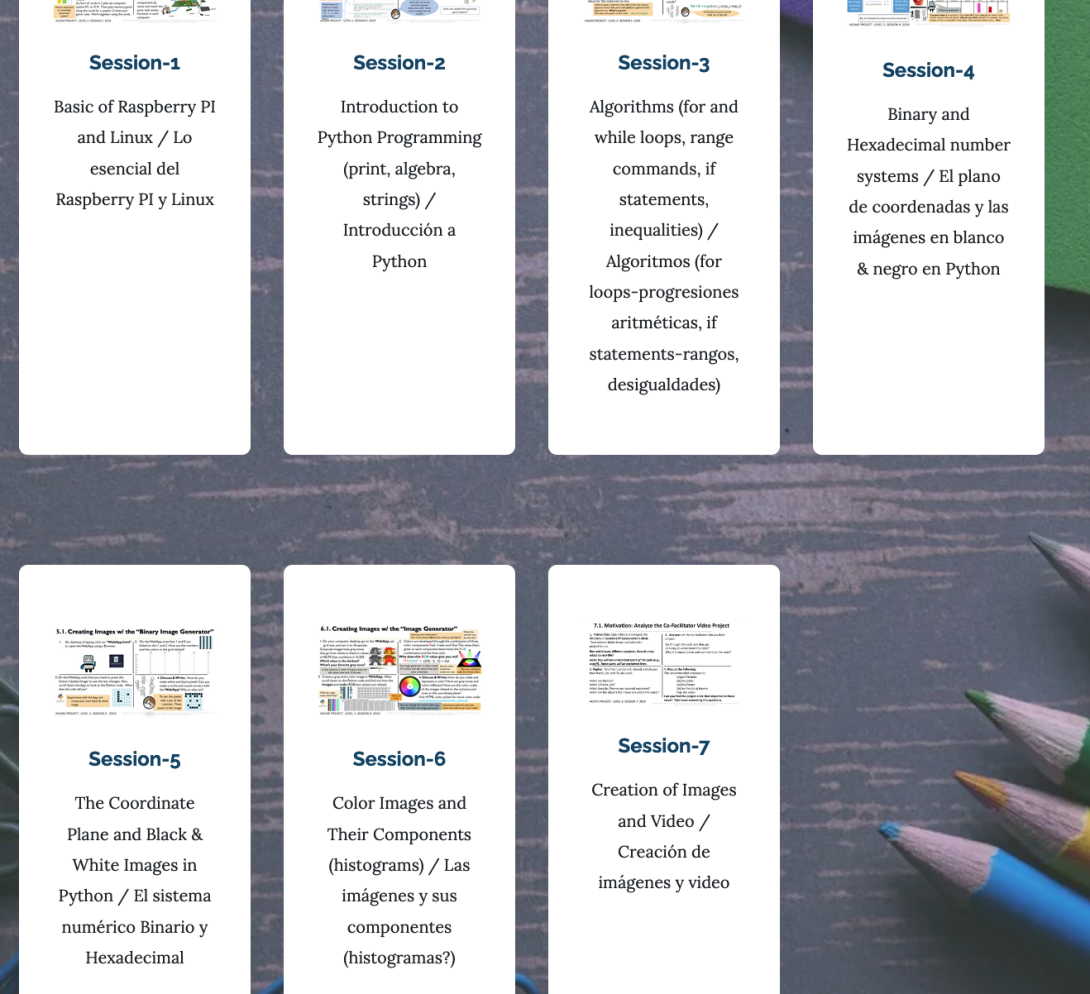Project Co-STEM
PosterThe goal of Project-Co-STEM is to develop a model for professional development and classroom implementation support that increases STEM learning opportunities for middle school youth from the rural communities and tribal nations of Northern Arizona.
Employing Peer Mentoring to Empower Youth to Become 21st Century Energy Leaders
PosterThis poster describes a project to foster energy/climate-related STEM career knowledge and interest in diverse high school students in Minnesota through an engaging year-long experiential learning project that tests the effectiveness of near-peer mentors as STEM/energy education and career role models that enhance the STEM-relevant cognitive and social-emotional impacts of simulation- and project-based learning.
WeatherX: Understanding Weather Extremes with Big Data
PosterWeatherX has provided data-rich science learning experiences for 12 teachers and over 470 middle school students in low-income rural districts in northern New Hampshire and Maine. In collaboration with students and teachers, we are learning how to make data science promote students’ understanding of and interests in important data practices. This project is built on a strong foundation of partnerships including EDC, Mount Washington Observatory, Concord Consortium, University of Maine, and University of Washington.
Making Mathematics Relevant: an Examination of Student Interest in Mathematics, Interest in STEM Careers, and Perceived Relevance
PublicationCommunity college students face difculties in mathematics courses and may not understand the relevance of the topics they are learning to their intended career. When such connections are not made, mathematics courses can become barriers to pursuit of careers in Science, Technology, Engineering, and Mathematics (STEM). In the present study, we assessed student interest in mathematics and various STEM career areas and students’ knowledge of ways mathematics was involved in STEM careers in order to better understand how these variables are related. We discovered that interest in mathematics
Making Mathematics Relevant: an Examination of Student Interest in Mathematics, Interest in STEM Careers, and Perceived Relevance
PublicationCommunity college students face difculties in mathematics courses and may not understand the relevance of the topics they are learning to their intended career. When such connections are not made, mathematics courses can become barriers to pursuit of careers in Science, Technology, Engineering, and Mathematics (STEM). In the present study, we assessed student interest in mathematics and various STEM career areas and students’ knowledge of ways mathematics was involved in STEM careers in order to better understand how these variables are related. We discovered that interest in mathematics
Computer Forensics Summer Academy & STEM CareerBuilder
Curricular MaterialsThe STEM CareerBuilder research and development (R&D) project aims to (1) explore what strategic government-university-industry partnerships and (2) study how technology-enriched interventions can encourage and support high school students with their pursuit of STEM education and careers. Multi-tier interventions with age-appropriate, interdisciplinary content, real-word context, and co-educational curricula include: Computer Forensics Summer Academy, mentoring, job shadowing, internships, research fellowships, and professional development. Activities Crime Scene Investigation Fingerprint
ASSISTments Assignments
Curricular Materials"Stories of Algebra" is a series or activities in the ASSISTments platform where students pose, solve, and share algebra problems related to their interests. Stories of Algebra created an experience where students receive activities personalized to their career interests (e.g., healthcare, IT), and/or personalized to their everyday interests (e.g., sports, video games). They have created these activities to a wide variety of types of mathematical functions - including linear, exponential, logarithmic, and power - and have targeted their activities to algebraic courses from 8th grade math, to
Design & Pitch Challenges in STEM (Middle School)
Curricular MaterialsIn these Challenges, you will need to think like an entrepreneur as you create real solutions to messy STEM problems. You will need to use your knowledge and expertise in creative ways to invent new products that meet customers’ needs. You will need to be able to recognize when you need to learn something new about STEM, your customers, or the situation, and be willing to work to learn it. But entrepreneurship is not just about building great solutions. At the end of each Challenge, you will need to convince a panel of judges that your solution is worth funding in a process called “making a
AOLME Level 1 Curriculum
Curricular Materials
Expand Latinx Learners’ Authentic Experiences in Computer Programming The curriculum was designed for and renovated through the participation and feedback of middle school students. It integrates basics of Computer Programming and Mathematics concepts and activities needed to represent digital video and color images. It draws on the almost natural motivation of users, middle school students, with digital image and video. The curriculum contains two Levels. Level-1 introduces the concepts of image and video representations. Level-2 takes these basic concepts to a next step by introducing object